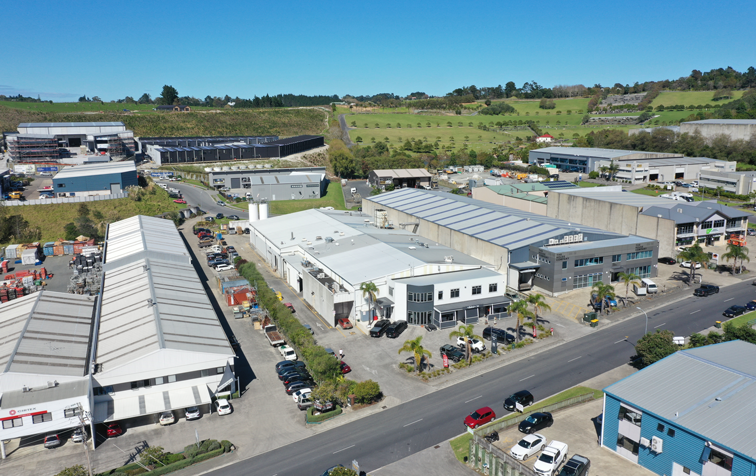First Light Capital has recently appointed Shane Scott as its new CEO.
He brings more than 25 years of real estate experience in New Zealand, the UK, Europe and the Middle East.
Shane has been a partner of Resolution Property in London for the last 13 years, helping the company to acquire, develop, finance and manage more than NZ$6.5 billion of real estate assets.
Shane Scott shares his thoughts on the current commercial property market with Wealth Morning.
What are the challenges facing the commercial property market at the moment?
It’s almost cliché to say we’re currently navigating a unique economic climate, and commercial property isn’t alone in what it’s facing.
Most notably, inflation has created a dual-edged sword in the New Zealand commercial property market for asset owners whose tenants are on leases in which future rents are based on CPI. With the consumer price index sitting at 7.2 percent, rental returns have increased considerably on levels set two or three years ago.
In the short term, CPI-based leases coming up for rental reviews over the next six to nine months will deliver even more improved outcomes for owners, until inflation subsides from its current peaks.
At the same time, mortgage interest rates that have been driven up by multiple rises in the OCR have seen loan repayment levels increase.
The risk of tenant failures is of particular concern for property owners. Businesses are being hit with higher costs on everything from rent, raw materials, fuel, wages, household living expenditure and processed products, whether manufactured locally or imported.
Add to that residual supply chain issues coming through China’s ports, and it’s a tough time to be in business. Small businesses that run on tight margins are being squeezed from all sides, and this increases the risk of defaulting on their lease obligations.
How has commercial property performed through the challenges of the last few years?
Different types of commercial property have performed in different ways. Industrial property continues to outperform other sectors of the wider property market.
In fact, premium commercial buildings with strong tenancy profiles – usually large corporates – have negotiated the past two years of economic and workplace turmoil better than many other asset classes. These tenants are better able to absorb rising costs, which feeds back into the reliability and quality of the premises they occupy.
Property assets in the industrial sector, and large, premium A-grade commercial premises are holding their value better and will recover faster during this economic downturn.
Elsewhere in the commercial property sector though, many smaller tenants are finding their bottom lines being squeezed as they cope with rent and cost increases. This may lead to a growing number of vacancies within B-grade stock, again underpinning the value of the premium and A-grade sector.
Is commercial property still a good investment?
For scaled property owners, the best approach to navigating the current economic environment is very much a case of adhering to the classic commercial property cliché of buying quality property in good locations with strong tenants on long leases.
After several years of being a sellers’ market, the property market as a whole is swinging in favour of buyers, and there are real opportunities to buy into standout A-grade commercial properties. Now is a very good time to diversify investment risk across multiple properties, sectors, and tenants.
As an example, our First Light Property Fund Offer has recently acquired a third property at 57 Forge Road, Silverdale, Auckland.
This industrial property is the food grade manufacturing facility for Dad’s Pies, which was purchased in late 2021 by Allied Foods, a subsidiary of George Weston Foods. The addition of an Auckland-based industrial facility both strengthens and diversifies the Fund with another premium tenant on a long-term lease.
It adds to the Fund’s existing properties in East Tamaki and central Hamilton to create a portfolio that lives up to our location, tenant, yield and potential growth criteria. As a result, the Fund offers a reliable 6% p.a. monthly return payable monthly; excellent returns in any climate, let alone the current one.
We believe this conservative investment structure enables us to provide our shareholders with superior security, and we’re currently active in the market looking for new acquisitions for both our First Light Property Fund and other syndicates.
Who is First Light Capital?
First Light Capital (FLC) is an independent commercial property and fund management company that prioritises people alongside performance. FLC prides itself on being accessible, accountable and assertive, with a portfolio of premium investments around New Zealand for both individual and institutional investors.
The company is 100% owned by the directors of the company and brings together
more than 100 years of combined expertise in property, funds management and investor relations in New Zealand and overseas.
FLC is a small team of industry leaders that believe in proactive asset management and open communication.
FLC was founded in 2020 when the three principals of the VCFO accountancy business, Randolph van der Burgh, Andy Archer and Roger Hatrick-Smith combined with capital markets veteran Toby Hunn to establish a new commercial property funds management business.
The seed investment vehicle, the First Light Property Fund Ltd., was oversubscribed and successfully launched in 2021.
The same year, FLC acquired Parnell Services Ltd. and its highly successful portfolio of syndicated properties.
The Business has since grown rapidly to having more than $330 million in funds under active management, including fund administration, on behalf of individual and institutional investors both in New Zealand and abroad.
(Disclaimer: This content is a partnered post. This material is provided as news and general information. It should not be construed as an endorsement of any investment service. The opinions expressed are the personal views and experience of the author, and no recommendation is made.)


